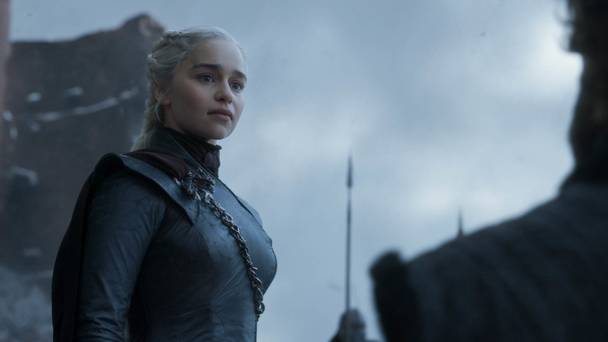So that’s it, then. After eight years, 72 episodes, many rapes, innumerable shocking and surprising deaths, a handful of epic battles and mass slaughters, thousands of gallons of fake blood spilled, untold millions of dollars spent and hundreds of internet memes about a coffee cup, it’s ‘Game Over’ for Game Of Thrones.
I was going to say ‘over bar the shouting’, except there’s been plenty of shouting about the eighth and final season already. About how big, important story arcs that had spanned the entire series (particularly the onward march of the terrifying Night King and his hordes) fizzled out with a whimper instead of a bang.
About how the writers betrayed some of the strongest female characters. Daenerys was transformed, in a single episode, from a hero to a paranoid, power-crazed headcase who incinerated thousands of innocent men, women and children for what seemed to be no reason at all, while the previously ruthless, heartless Cersei suddenly turned into a whimpering damsel in distress, pleading with her brother/incestuous lover Jaime to protect her.
About how the standard of writing dropped once the series deviated from the sacred text of George RR Martin, who’s still not finished writing the penultimate novel in the series. Given it’s been eight years since the last book, readers must be wondering if he’ll ever conclude the saga.
Mostly, the shouting was about how season eight was too short, and felt thin and rushed, with plenty of action and spectacle, but not much in the way of character depth or consistency, and plot holes big enough to fly a dragon through.
The cynical opinion is that showrunners David Benioff and DB Weiss, knowing they’d already landed the biggest gig in Hollywood — overseeing the next Star Wars trilogy — just wanted to wrap Game Of Thrones up as quickly as possible.
But if you ignore the million or so permanently infantilised idiots who’ve petitioned HBO to remake the entire eighth season using different writers, it would appear that, following last night’s finale, Game Of Thrones fans are simply too exhausted at this stage to do any more shouting.
As someone who’s not a hardcore Game Of Thrones fan, but who’s been paying close attention over the last few weeks to the reactions of those who are, the finale appears to have been greeted with a weary, defeated shrug.
The majority consensus is that the final episode was — for reasons I’m not going to go into here in case you’ve not yet watched it — a disappointment, but a disappointment they were prepared for. Forewarned is forearmed, as they say.
Given the dog’s dinner that was season eight as a whole, nobody realistically expected Benioff and Weiss would be able to wrap the whole thing up satisfactorily in one 90-minute instalment.
The pair did themselves no favours with scripts that were frequently sloppy, yet you have to wonder if any showrunner(s) could have delivered a finale that did complete justice to the epic story. The truth is, whether it’s a novel, a cycle of novels, a film or a TV series, the ending is always going to be the hardest part of the story to get right.
Even Stephen King, one of the most successful, prolific and beloved authors the world has ever seen, sometimes struggles with endings.
His epic novels It and The Stand are two of his masterpieces, yet in both cases, the climax is the weakest element of the book. But both are such gripping, rewarding and otherwise brilliantly crafted reads that you can overlook that little stumble at the final hurdle.
Game Of Thrones may have fluffed the finale, but it was by no means as bad as those of Lost and Dexter, which were insultingly awful.
Ultimately, even those of us who are GoT agnostics owe it a lot for reviving something we’d thought had been rendered extinct in an era of streaming services and binge-watching: the notion of television as a global communal experience. It’s hard to imagine any other series that could have done that.
Read more: Game of Thrones backlash: why do fans hate the ending of the ‘rubbish’ series – and the writers – so much?
Source: Read Full Article
